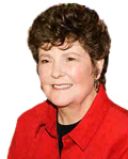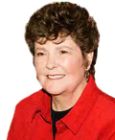Sleep
Get Smart: Take a Nap and You'll Learn Better
Get Smart: Take a Nap and You'll Learn Better
Posted February 22, 2010

Soren Kierkegaard may have been thinking about napping when he wrote, "Sleeping is the highest accomplishment of genius." Brahms napped at the piano while he composed his famous lullaby. Napoleon napped between battles. Churchill maintained that he had to nap in order to cope with his wartime responsibilities. Geniuses such as Edison and Leonardo da Vinci napped.
While writing Brain Sense, I reviewed a large body of research on napping, and my conclusion was unequivocal. Napping improves performance on whatever you do. For everyone--from computer programmers to long-haul truckers--napping delivers benefits.
Now new evidence suggests that naps do more than refresh the mind. They can actually make us smarter!

A research team at the University of California, Berkeley, has announced the results of a new study on napping. Here's how the study was done: At noon on experiment day, the researchers gave 39 healthy young adults a difficult learning task designed to tax the hippocampus, a region of the brain that helps store fact-based memories. Then, at 2 PM, half of the subjects took 90-minute naps and half did not. At 6 PM, all the subjects performed some new learning tasks.
The results were dramatic. Those subjects who remained awake throughout the day did worse than they had done in the morning, but those who had napped did better. The nap actually improved their ability to learn.
Sleep clears the brain's short-term memory storage and makes room for new information, says the research team leader Matthew Walker, an assistant professor of psychology at UC Berkeley. Since 2007, Walker and other sleep researchers have established that fact-based memories are temporarily stored in the hippocampus of the brain before being sent to the prefrontal cortex, which may have more storage space.

"It's as though the email inbox in your hippocampus is full and, until you sleep and clear out those fact emails, you're not going to receive any more mail. It's just going to bounce until you sleep and move it into another folder," Walker says.
Walker presented the new study last week at the annual meeting of the American Association for the Advancement of Science (AAAS) in San Diego.
For More Information:
Brynie, Faith. Brain Sense.
Brynie, Faith, 101 Questions About Sleep and Dreams That Kept You Awake Nights . . . Until Now.
"Don't Knock Naps, They Make You Smarter," USA Today, February 22, 2010.


